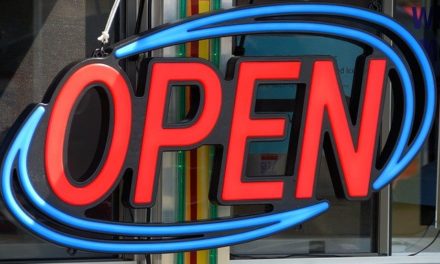By Becca Heller
becca@marylandreporter.com
A state bill proposing to set a $10,000 maximum tax on boat sales sparked a tense debate due to its potential implications on Maryland’s struggling maritime economy and the Waterway Improvement Fund (WIF).
The bill was drafted with aims to stimulate local marine-related jobs and businesses and discourage out-of-state purchase of boats — a practice which has become increasingly common due to the lower sales tax of vessels in neighboring states.
“Working where I do, I have a front row seat to the recreational marine world, and the past few years have been alarming,” said Bill Brandon, who works at Tidewater Yacht Service in Baltimore. “Vessels that have been registered and kept in Maryland are being sold and shipped out of state at a rising rate.”
Lower tax undermines waterway fund
Lowering the boat tax, however, would reduce funding to the already underfunded waterway fund; and while the annual cost to maintain existing boating infrastructure is about $41 million, the fund brought in just $14.5 million in fiscal 2012, according to the Department of Natural Resources.
“House Bill 548 would further reduce the Waterway Improvement Fund, leaving Maryland unable to maintain waterway navigation channels, resulting in public safety hazards, access issues for commercial watermen, detriments to restaurants, marinas, and tourism, and a loss of boating related jobs,” said Olivia Anderson, legislative director of the Department of Natural Resources.
Proponents of HB 548 counter that the initiative, which most notably made Florida $13.5 million in 18 months, would generate significant capital for the industry and would in turn be a positive thing for WIF. The Department of Legislative Services estimated that the sale would result in about $3 million less in revenue based on past tax collections, but said that number could vary widely if boat sales increased due to the lower tax.
Tax cap helps sales of high-priced boats, but hurts average owner
With the tax cap, the bill particularly incentivizes the purchase of larger, more expensive boats — a factor which some feel is critical to healthy maritime economy.
“Boat US statistics show that 10% of a vessel’s value is spent each year on maintenance, repair and storage,” said Susan Zeller, the executive director of the Marine Trades Association of Maryland. “As an industry, we are missing out on a substantial amount of maintenance, repair and storage by not registering more boats in the 50 to 70 foot range.”
Others feel that the $10,000 tax cap unfairly advantages those who are already wealthy enough to purchase bigger boats, leaving the brunt of the tax responsibility on the “average” boater.
“Limiting or capping the tax at a specified dollar amount would mean that a purchaser of a vessel with a smaller fair market value would be paying the full 5%, while a purchaser of a vessel with a greater fair market value would be paying a smaller percentage of tax,” said Andrea Mansfield, the legislative director of Maryland Association of Counties. “This does not constitute fair tax policy.”
Supporters of the bill assert that, on the contrary, this bill would benefit, not just the wealthy, but also small businesses and the state.
“While buyers do benefit from these tax policies, the real winners are state treasuries and the hundreds of workers who depend upon the business generated by these boats,” said David Dickerson, state government relations director for the National Marine Manufacturers Association.







Seems like the government is increasing taxes on every little thing, it will be beneficial for Waterway Improvement Fund but boat owners won’t welcome this.
Basic economics says if you want more of something, make it cheaper… thus the $7500 tax credit for the boondoggles known as electric cars. The tax on boats in Delaware is 3%, and I know plenty of boaters who buy and keep their boats there to save a couple of percent. The tax on booze in MD is 9%, and in Del it’s zero%, I know plenty of boaters who either drive to or through Delaware and buy their booze there.
The waterway improvement fund? What’s that? And what’s it spent on? I can assure you as someone who has boated the northern Chesapeake for the last 10 years, precious little is spent on maintaining non-commercial waterways. The entrance to Rock Hall Harbor was pretty much a mud flat before they dredged that. The northern approach to the Kent Narrows is a mess, and all they do is throw in a temporary buoy. Grounding there is pretty much a given.
The question is very simple: Do we want some revenue or no revenue from people who have gobs of discretionary spending to throw around? And do we get any value for that money in the first place, or just a bunch of well-paid state employees doing nothing?
Fla. found that by promoting a FAIR tax, many then found it ok to pay, and spent far more in other costs that remained in the state. Same with MD, I take all my business to VA while being registered in DEL. Not while O’Maley is around, idoit!
someone has to pay for the illegal immigrants in this state – unfortunately, the fools keep voting these idiots in! Time to open the primaries to ALL LEGAL REGISTERED VOTERS (CITIZENS) of this state.
I have two homes…one here and one in FL. I considered buying a second boat for my Baltimore home, as I am here all summer. When I consider the tax implications versus the cost of transporting my boat twice a year, it’s cheaper to bring it with me. Plus…I don’t have to pay for any Maryland registration fees. Maryland is screwing itself out of revenue both from sales taxes and usage fees with their tax policy. That’s the primary reason I established a residence in Florida. I spend 6 months and 1 day there each year.
When sales tax increased to 6%, I decided that I would not buy another boat as long as I live in MD. Plan on retiring and leaving for a more tax-friendly environment, and will buy a boat at that time…in that state.